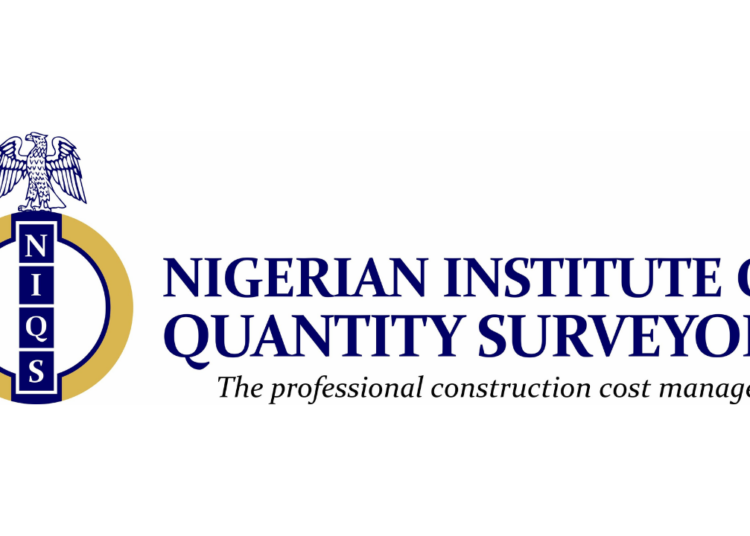Nigerian Institute of Quantity Surveyors (NIQS), has said that the only solution to the cost of building materials in Nigeria is to produce locally.
In a media briefing held in Abuja over the weekend, in preparation for the forthcoming 30th Edition of it’s Biennial Conference and General meeting, scheduled to hold from the 21st to the 25th 2023, with the theme: “Integrated Cost Management Solutions for Sustainable Infrastructure Projects Delivery: A Key to National Economic Development,” the President of NIQS, Surveyor Olayemi Shonubi, said that the high cost of building will remain except if government at all levels and operators in the construction sector adopt the use of local building materials, adding that this may take a while but it is the solution.
He said that as a professional organisation dedicated to advancing the field of cost management in infrastructure projects, the Institute boasts a membership strength of almost 12,000 individuals across all cadres.
“Today, we announce the commencement of the 30th Edition of our Biennial Conference and General meeting, scheduled to hold from the 21st to the 25th of November 2023.
“This week-long event, which is packed with diverse activities, include a Visit to an Orphanage in furtherance to our Corporate Social Responsibility, a Welcome Cocktail for all member, a two-day conference, Induction of new corporate members, Investiture of new Fellows, the Annual General Meeting, the Biennial General Meeting, and the Elections into various positions in the National Executive Council.
“In addition, there shall be the formal Investiture of the 27th President of the Institute, QS Kene Chris Nzekwe, as well as the Inauguration of the newly elected members of National Executive Council that will steer the affairs of the institute for the next two years.
“The theme for the two-day conference which is to address the critical challenges facing Nigeria’s infrastructural growth is: Through seven distinct sub-themes, our conference will seek to explore and interrogate crucial aspects such as Cost Management Best Practices, Sustainable Infrastructure Finance and Investment, Policy, Regulatory Frameworks, Standards, and Data for Cost Management of Infrastructure, and Procurement Strategies for Cost-effective Infrastructure Development.
“We believe that by fostering collaborative dialogue among industry experts, policymakers, researchers, and thought leaders, we can address the multifaceted challenges impeding our nation’s pursuit of comprehensive and sustainable infrastructural growth. Our collective efforts, showcased through this conference, will pave the way for a more resilient and economically sustainable future,” he said.
However, Shonubi regretted that the professional bodies are inadequately funded and so will not be able to carry out some of the functions required of them.
“Government said it is not going to fund the professionals. I do not know how those bodies are going to survive. There is inadequate support for the body that it (government) created. So it is like the government is even encouraging quackery indirectly” he said.






